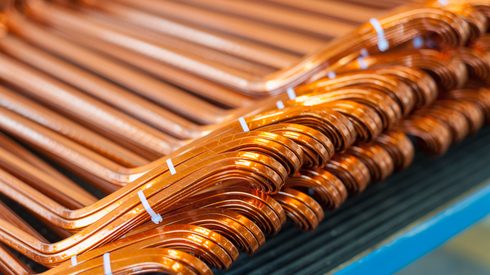Trump’s ideas to make global trade more fair are “overly simplistic and do not take into account the degree to which the global economy is intertwined,” Edward Meir, an analyst at New York-based INTL FCStone Inc, said in a report on Monday January 9.
Introducing border tariffs may not settle matters and could worsen the situation, he said, giving the example of the USA slapping tariffs on imports of Chinese tyres in 2009, which resulted in China imposing a tax on US chicken parts.
“We suspect that a more serious flare-up between the two countries this time around will imperil more important exports than chickens, possibly including Boeing planes and US Treasury sales,” Meir said.
Trump’s promise to declare China a currency manipulator after he takes office is not as straightforward as it might seem, either, according to Meir, as if the USA places that designation on China, the ensuing negotiations could take up to a year.
And although China has been spending reserve money in the past few years to prevent the yuan from falling, “China does not even meet the Treasury’s official designation for being a manipulator”, Meir said.
Trump has vowed to levy trade duties on Mexico, but his threats are empty, according to Meir, as the country’s comparative advantage in labour-intensive manufacturing is legitimate, and it has become 10% cheaper to operate in Mexico since the result of the US election was announced.
And US companies manufacture many of the parts that go into Mexico-produced automobiles in the USA, so tariffs would “complicate trade flows and make production more inefficient”.
Meir also sees Trump’s advocating that companies remain in the USA as problematic.
It might boost Trump’s popularity, Meir said, but it does not account for unforeseen effects, such as higher prices for US consumers and a general misallocation of resources.
However, Meir said that Trump’s trade threats “could still prove handy, especially if they can be used to negotiate easier entry in foreign markets, which is the more logical path to pursue”.
If the situation were to become unmanageable, Meir warned that a trade war could start, which would be “extremely destabilising for the markets”.
And Meir preached caution regarding Trump’s proposal to spend approximately $1 trillion on infrastructure over the next decade.
The USA’s consumption of key ferrous and non-ferrous metals is relatively small, particularly when compared with China, he said. For example, China consumes roughly half of the world’s supply of copper, while the USA consumes about 8%.
Also, having the investment drawn out over ten years is likely to mitigate its bullish impact. And as Congress will have to sign off on such an investment package; dubious Republican support could make Democratic backing necessary.
Regarding base metals, Meir expects high prices to begin to soften in the second quarter of 2017 after surging in the fourth quarter of 2016, partly due to Trump’s infrastructure investment promises.
And Meir believes metals producers will attempt to take advantage of the higher prices by introducing more supply into the market.
Any type of credit-induced contraction in China’s economy could come into play, too, reverberating through the system and sliding some of the small-deficit projections toward a balance or surplus.
Meir acknowledged that given the numerous global uncertainties – including the political unknowns in Europe and the ambiguity surrounding Trump’s presidency – forecasting has become uniquely challenging.
“In sum, 2017 reminds us of the immediate period following a massive earthquake,” Meir said. “Although things may be relatively quiet at the moment, people are sensing that more aftershocks lie ahead.”





